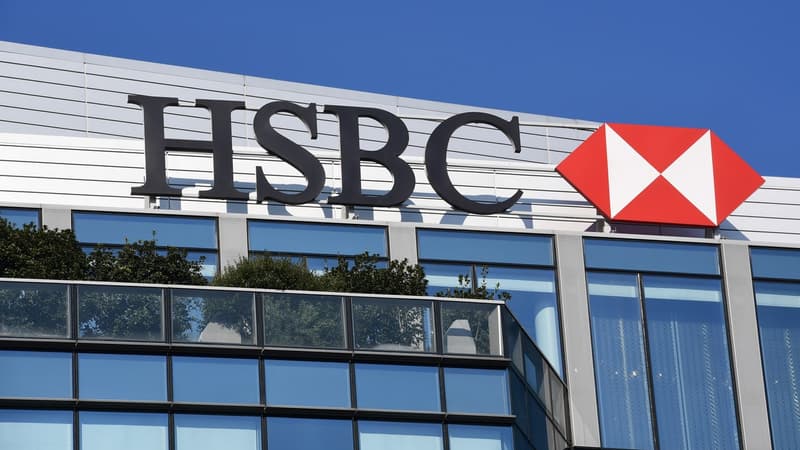Traditionally, for individuals, that is, for you and me, the bank is divided in two. There is retail banking for the majority and there is “private banking” for the very rich. It offers hyper-personalized banking services around wealth management, once it exceeds a certain amount -with a highly variable threshold depending on the entity because in private banking there are gradients of “almost-rich”, “rich”, “super – rich” and beyond.
Traditionally and especially discreet sector, little is said about private banking. However, this does not mean that it is not subject, like retail banking, to strong changes: new rich (from entrepreneurs of the new economy to successful “youtubers”!), new services and new types of investment. Wealth itself is changing.
In recent decades, this development has been marked in particular by two decisive phenomena: the formation of wealthy classes now worries many countries and, on this international scale, private banking represents a mass market, which completely upsets the situation. Above all if we include -which seems the most logical thing- in this segment of “well-to-do masses” not only the wealthiest but also those who promise to be so, for example because they follow advanced training that opens many doors for them at an international level.
From a financial point of view, it is obviously a very interesting population, which the banks, however, have never known how to treat well. Not yet having the level of assets that allows them to access private banking services, however, this population needs specific support that retail banks find it difficult to provide.
The rise of a new class.
It is in the first place that the emerging wealthy profiles move a lot. At their level, expatriation has become common, since the formative years. In 2000, in his novel super reedsJG Ballard was one of the first to capture this new class of wealthy workers (soon to be called the “creative class”), increasingly homogeneous in their tastes, their expressions and their ways of life, whatever the country of origin. and settlement. in an increasingly “shallow” environment in their host countries and often just passing through.
But, what bank can serve this population? In reality, there is only one, among those installed, whose global coverage is sufficiently developed: HSBC, present in 62 countries in personal banking. HSBC quickly understood this and thus began a strategic reorientation, as rare for a large bank, due to its scale, as ultimately little noticed.
The first step was to become visible as a Local World Bank where the establishment had the best chance of reaching its objective: airports; in some of which HSBC has developed a rare advertising ubiquity for a bank. A new campaign will launch today targeting expatriate professionals, students abroad and international investors, a truly massive market that HSBC estimates at 90 million people (the store itself has 40 million customers). Profiles to which HSBC promises to be at home everywhere, in terms of financial services and in particular access to credit, with free slot assistance and, in open banking, a range of additional services.
Therefore, it is not a question for HSBC to refocus on wealth management but to create a bridge between retail banking and private banking aimed at an emerging wealthy population. And for its campaign, HSBC has chosen a dozen countries that outline a geography of active wealth, in formation, that has something to fear in old Europe. Because Paris, Berlin or Geneva are not part of it but the Emirates, the Channel Islands and the Isle of Man. Everything else is Anglo-Saxon (United States, United Kingdom, Canada, Australia) or Asian (Singapore, Hong Kong, India and Chinese). As expected, because the wealth is now emerging mainly in Asia. So much so that the first shareholder -Chinese- of HSBC could recently propose dividing the establishment in two, to concentrate its vital forces in Asia.
Bridging the gap between retail banking and private banking
The proposal was not followed. HSBC has no intention of leaving countries like the United States or Canada. However, it does not want to carry on with traditional retail banking activities there. In France, HSBC wanted to sell its branch network. The operation marked the mood, finding HSBC selling its assets not only for a symbolic 1 euro but also, to put it briefly, with a check for 2,000 million euros paid to the buyer. In fact, the operation (now apparently suspended) seemed more like outsourcing, justifying investments, than selling an unprofitable asset at a loss, since according to the scheme adopted, HSBC had to maintain its own distribution channel through its old network. . for their products. Again, for the institution, it’s not so much about refocusing solely on wealth management as it is about building a bridge between retail banking (which, however, no longer justifies recurring fixed costs, or insufficient customer engagement “promising”) and private banking.
All in all, HSBC thus makes a very interesting strategic bet in a thriving segment in which it has no real competitor. As we recently pointed out, in fact, only neobanks that are natively international and appeal to the same targets, such as N26 and especially Revolut, seem capable of outshining it. However, Revolut’s latest announcements regarding its launch into more banal consumer credit begs the question of whether it has got the point right.
In the world-economy of tomorrow, will there be a single global bank? It doesn’t seem very believable. A Goldman Sachs venture into retail banking with Marcus, whose failure was largely due to poor targeting, shows that large institutions will have the wherewithal to align on an international scale. The question is rather the following: tomorrow, for the banks, which for the most part remain today essentially national (or even European), what market will be left for those who have not been able to adopt a global vision?
Source: BFM TV


